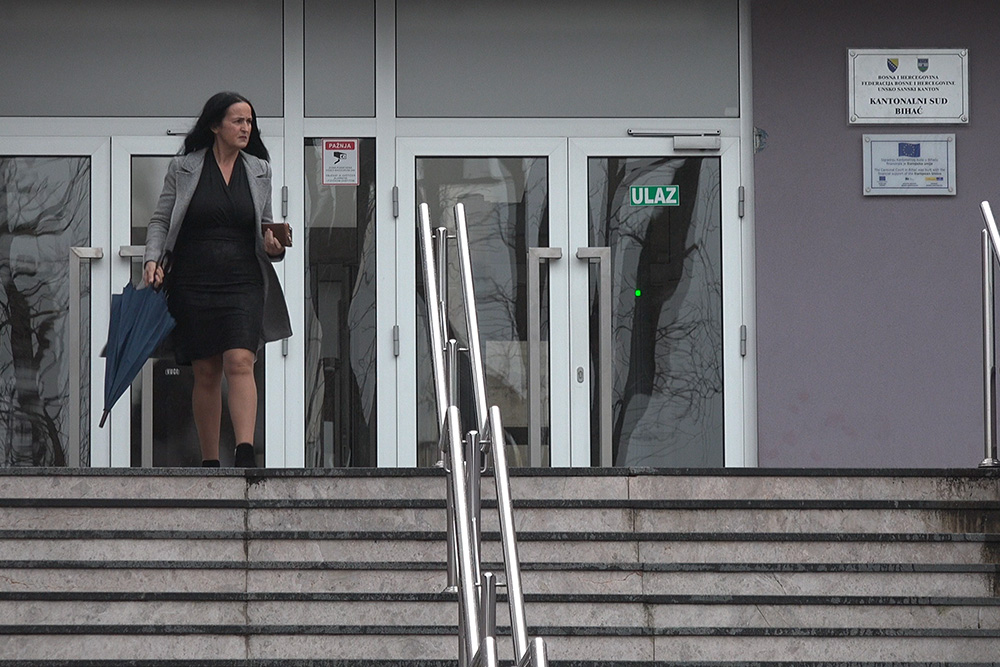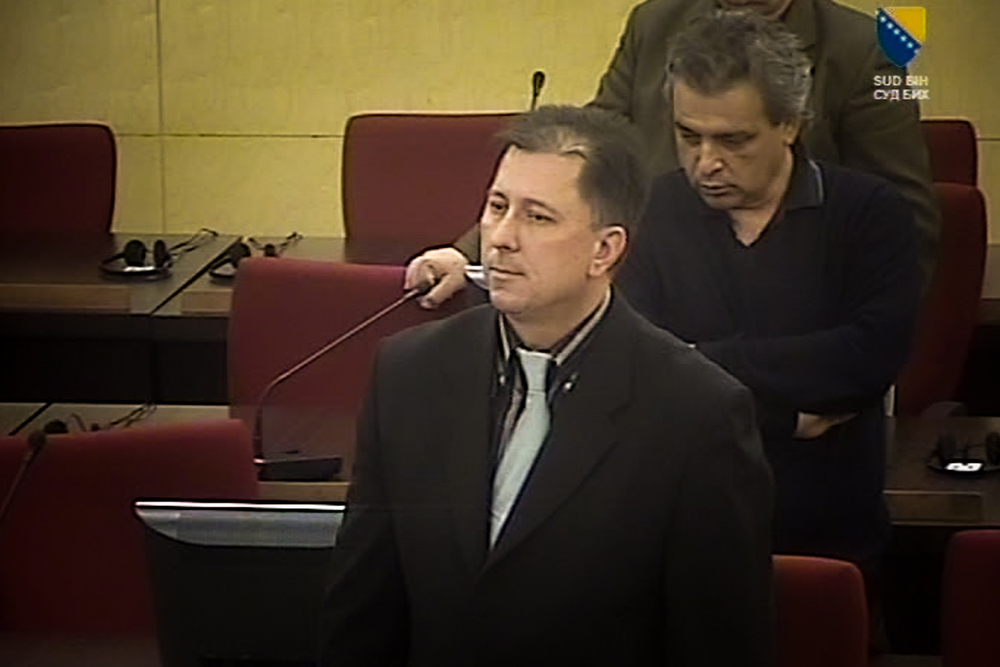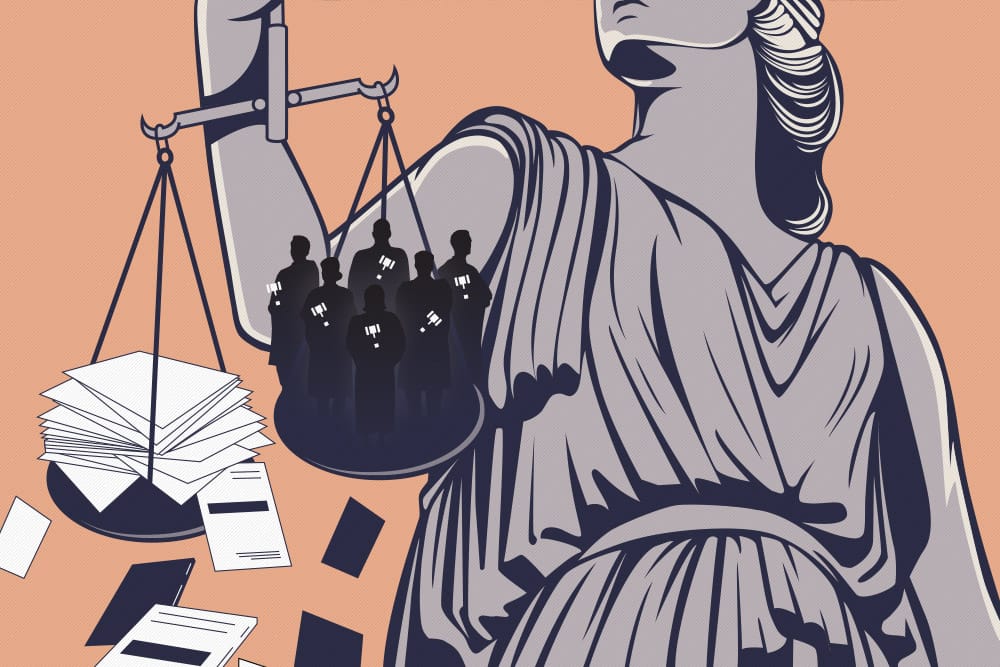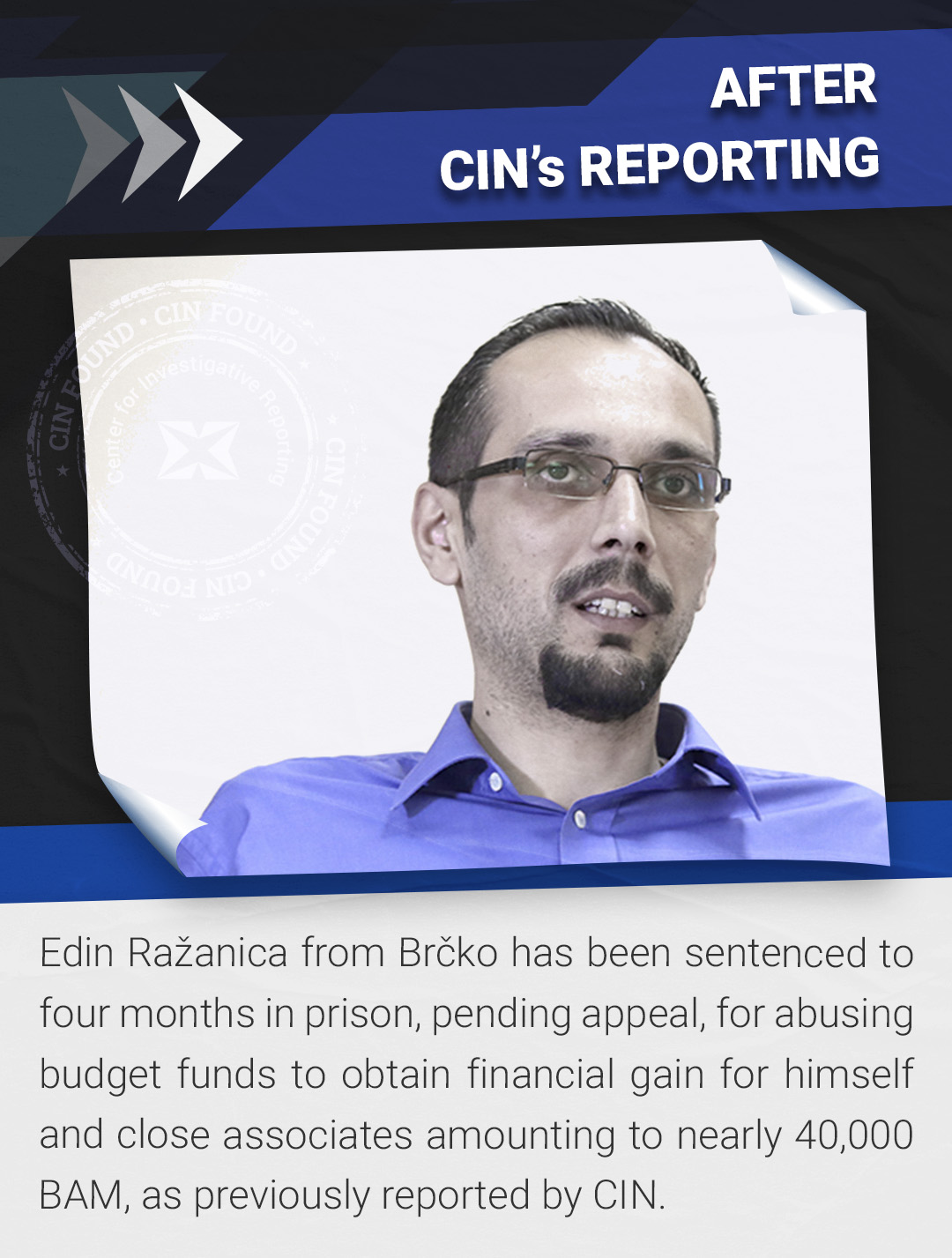The trial against Željko Ubiparip, the owner of the company Jaspot from Mrkonjić Grad who was accused of defrauding workers, concluded without justice being served.
The court proceedings were not completed within the time limit provided by law, leading to the case being closed due to the statute of limitations except for cases od genocide, war crime or lifetime imprisonment. The criminal codes in Bosnia and Herzegovina (BiH) set a timeframe of 3 to 40 years to conclude criminal proceedings and enforce court verdicts. After this period, the case becomes time-barred and cannot be pursued further.
From 2018 to the end of 2023, a total of 1,713 cases in Bosnian courts were time-barred during criminal proceedings or the enforcement of the judgment. In only 27 cases, judges were found to be liable for the time bar.
The High Judicial and Prosecutorial Council (HJPC), the body responsible for overseeing the judiciary, does not perceive an issue with the number of time-barred criminal cases, nor do they have a strategy in place to reduce it. They view the statute of limitations in the context of the extensive number of resolved cases, totaling tens of thousands. Furthermore, it is regarded as a legal provision that is mandated by law and cannot be circumvented. Cases closed due to the statute of limitations count towards the judges’ quota.
CIN reporters reviewed about 200 criminal cases that had reached the statute of limitations, and they found that it mainly occurred due to the escape, illness, or death of the accused or convicted individuals, as well as due to inefficient and lengthy proceedings, or replacing of judges. These include crimes such as theft, light bodily injuries, fraud, drug trafficking, attempted murder, and other offenses with lighter penalties and shorter statutes of limitations.
In his paper titled “The Statute of Limitations in Bosnia and Herzegovina”, retired judge Miloš Babić explained that the statute of limitations is a legal concept that terminates the state’s ability to punish, highlighting that this principle frequently favors the perpetrators, often at the expense of the rights of victims and the pursuit of justice.
Nine Hearings Never Convened
The beginning of 2009 seemed promising to the employees of the company Jaspot. With favorable loans and incentives he received, the owner of the company, Željko Ubiparip, initiated the production and upholstery of furniture in Mrkonjić Grad.
“Things were being produced, hammers were pounding, and honestly, I was so happy”, reminisces the former employee Milja Busin Grabež.
However, already the next year, the salary started to get late.
Busin Grabež recounted that Ubiparip had suggested to her and some other workers to take out loans of BAM 5,000 each and give him the money to invest in the business, promising to repay the installments within a few months. At least eight workers agreed to do so.
“These were some quick loans that can be arranged in a day, all the paperwork and the disbursement of funds to our accounts”, explains Busin Grabež. The repayment period was two to three years, without guarantors.
She mentioned that, like others, she also gave Ubiparip the money in an envelope, just as she had received it from the bank. “It never crossed anyone’s mind to suggest, ‘Let’s draw up some kind of contract, anything so that we have proof that we handed over the money to you”, she remarked.
They realized that the situation was not unfolding as agreed when the bank began sending them warnings, threatening to seize their property. “Ubiparip paid some of the installments, but not the majority”, Busin Grabež said.
In September 2015, one of the workers reported the case to the District Public Prosecutor’s Office in Banja Luka, which spent three years interviewing witnesses and gathering documents on loans and employment contracts.
In the meantime, the company ceased operations due to a sudden fire in their premises, the cause of which was never discovered. Ubiparip, as a member of the Socialist Party, was appointed as the director of the Center for Professional Rehabilitation and Employment of the Disabled in Banja Luka.

During the investigation, he told the police that he neither advised the workers to take out a loan nor did he take any money from them. Instead, he stated that he merely signed the loan documents for them. “These workers took out loans for their personal needs on their own initiative.”
Ubiparip did not respond to calls and messages from reporters for an interview.
In October 2018, the prosecution accused him of fraud. He was charged with defrauding the workers by taking BAM 5,000 from each of the eight workers – money they had withdrawn from the bank – thus obtaining a gain of BAM 40,000.
The case was assigned to the judge of the Basic Court in Mrkonjić City, Neđija Šehalić.
By October 2019, witnesses were heard and the prosecutor gave his closing statement. The defense was expected to quickly present its closing arguments and the judge to deliver the final verdict, but this did not happen. The trial continued for the next year and a half because the hearings were postponed nine times. These delays were mostly due to requests from defense attorney Dino Tešić or the accused Ubiparip. Reasons included the lawyer attending a seminar, other hearings, the accused breaking his arm and needing treatment, and later going into isolation due to the coronavirus pandemic.
“Everything was done to reach the statute of limitations”, said judge Šehalić.
That’s exactly what happened in April 2021, when the judge issued a decision rejecting the indictment due to the absolute statute of limitations in the criminal proceedings because the ten-year deadline for passing a final verdict for an offense punishable by a prison sentence of more than three years had passed.
The statute of limitation is counted from the day the crime was committed until the conclusion of the procedure, i.e., from the day of the final judgment to the enforcement of the sentence. It is determined in each procedure separately, taking into account all relevant information, primarily the severity of the penalty and the time of the crime, i.e., the time the judgment was pronounced. Fines or shorter prison terms have a shorter statute of limitations, while harsher penalties come with a longer one.
“The defense attorney of the accused is definitely to be blamed for this”, said judge Šehalić, explaining that the attorney did not always have justified reasons for postponing the hearings. “As colleagues, we are understanding of their situation. If he is a lawyer with other hearings already scheduled, then we postpone. As soon as I postponed that hearing and scheduled a new one, he was off to Romania, then he was sick, or the other one was sick”.
The judge mentioned the documentation about the scheduled and postponed hearings, her efforts to conduct the hearings, and orders to the police to bring the accused to court. However, she admitted that she had not imposed the BAM 5,000 fine available to her when the lawyer delayed the proceedings.
“I did not think that I would achieve anything with that sentence because I believed he would continue to play tricks on me and prolong this process. That’s why I did not impose the fine. I haven’t penalized any attorney so far, so I haven’t penalized him either”, said judge Šehalić.
Attorney Tešić, however, perceived this as a confirmation that he acted properly: “The fact that I was not penalized in this case indicates that the postponements were justified.”
Šehalić submitted a report on the statute of limitations to the HJPC, detailing the scheduled and canceled hearings, but did not allege any abuse of procedural law.
“I can’t write everything in that report”, said the judge.
The Office of the Disciplinary Counsel (ODC) reviewed the report and concluded that there were no grounds to initiate disciplinary proceedings against the presiding judge.
The case was counted in the judge’s quota, attorney Tešić collected BAM 7,500 from the budget for representing the accused, Ubiparip was cleared of charges, and the victims were left “empty-handed.”
“I don’t trust this whole system, the state apparatus, this country (…) I do not trust anything about it”, says Busin Grabež, a single mother of three who now earns a living working in a bakery.
As Judge Miloš Babić explained in his paper, the application of the statute of limitations undermines the protective function of criminal law and weakens its general deterrence, which is contrary to the principle of justice.
“Unjustifiably, the perpetrators of criminal acts are favored, while their victims and the pursuit of justice are neglected”, Judge Babić wrote in his commentary.
Court Officials With Forged Diplomas
The statute of limitations on the criminal procedure enabled officials of the Cantonal Court in Bihać to continue working with forged high school diplomas several years after the case was uncovered.
In 2019, the president of the court, Fata Nadarević, discovered that three typists – Fatima Husarević, Mufida Hrnjić, and Ismeta Havić – along with the information and communication technology officer, Radoslav Bukarica, possessed invalid high school and college diplomas.
She informed the Cantonal Prosecutor’s Office of the Una-Sana Canton (USK), which by 2022 had brought charges against them for forged documents. The cases were referred to the Municipal Court in Bihać, where the statute of limitations on the criminal proceedings was determined in each case before the charges were filed.
The court concluded that the crimes occurred in 2006 and 2007 when the workers were employed based on the challenged diplomas, and since then, ten years had passed – the legal period for concluding a procedure in which a sentence of more than three years of imprisonment could be imposed.
Prosecutor Alida Kadić appealed against such court decisions, believing that when deciding on the statute of limitations, the fact that these diplomas were in the workers’ files and were the basis for their employment should be taken into account. The appeal was rejected, and the courts upheld their decision.

The USK Prosecutor’s Office then initiated proceedings for the revocation and destruction of the diplomas.
“There is no doubt that they are forged”, said prosecutor Kadić.
The court accepted this motion in the case of typists Hrnjić and Husarević, and consequently, they lost their jobs in 2023. Havić is still working and awaiting a decision on her case. Without such court decisions, none of them would have lost their jobs.
Bukarica left the court before charges were brought, back in early 2020.
Although her defense insisted on the statute of limitations, Husarević stated that it did not help her, and she wished for the truth to have been established in the proceedings.
“It’s not a conviction, but in that decision where they stated the diploma is fake, there’s now an implication that I used that fake diploma, as my president claims, knowing it was fake, and presented it as genuine”, elaborated Husarević. She added that she started working as a minor without completing high school, and in 2005, they were all told that everyone must have valid diplomas to retain their positions.
The court secretary informed them that they all needed to have it by the end of the year. “With three and a half months remaining to the end of the year after we returned from our annual leave! How? We ought to find the way. It meant to go and buy one”, says Husarević.
She had gone to the branch office of the Travnik High School of Economics and Hospitality in Sanski Most and paid three thousand marks of tuition in cash from a loan, but as she claimed, she did not receive a receipt nor was her name on the list, even though she attended classes. She believes that someone at the school had kept the money for themselves and did not record the information.
In ODC, the institution that reviews statute of limitation reports, they believe that this case being time-barred is not due to someone’s subjective omission, hence they did not consider initiating disciplinary proceedings.
They initiate the procedure only when there is suspicion of a failure to act, but it is the commissions that determine responsibility and impose sanctions. So far, these have been public warnings or salary reductions for a few months.
Prison after the statute of limitations will be paid by the state
According to Deputy Chief Disciplinary Counsel, Mirza Hadžiomerović, in most cases, disciplinary charges are not brought because the statute of limitations has occurred due to subjective circumstances such as the person being sought having fled or the inability to determine the negligence of individuals in the institutional chain. Also, there have been situations where they did not initiate the procedure even when there was information indicating omissions.
“For instance, in situations where a judge or prosecutor who no longer holds a judicial function was involved”, explains Hadžiomerović, adding that there have also been cases where the statute of limitations was discovered after a judge retired.
This was the case in the proceedings against Dragan Makivić from Banja Luka, who, due to the statute of limitations, will not spend three years in prison for tax evasion, nor will he pay the fine of BAM 10,000. As of now, there is a separate procedure underway for the BAM 629,742 in proceeds from the criminal offense, which he has not had confiscated yet.

In January 2011, Makivić was sentenced by the Court of Bosnia and Herzegovina. Judge Nenad Šeleda ordered him to go to prison, but Makivić requested and was granted a postponement of his departure. He failed to appear at the new hearing, and since the police did not find him at the reported address, a warrant was issued for his arrest. At the same time, he initiated a request for a retrial citing overlooked important details.
In the new proceedings, in August 2015, Makivić received the same sentence, and the judge had five years to initiate its enforcement.
However, Judge Šeleda did so only after six and a half years. Makivić was arrested at the border crossing in Kozarska Dubica and taken to a prison in Istočno Sarajevo, where he was held from March to September 2022. He wrote to the Court of Bosnia and Herzegovina from prison requesting to determine the statute of limitations for enforcing the verdict, which the Court confirmed. As a result, Makivić was released from prison and is now suing the state because he was incarcerated during the statute of limitations.
In the process, he asked for BAM 100 in compensation for each of the 183 days spent in prison. The Court of Bosnia and Herzegovina accepted his lawsuit, but they refused to provide information on the amount of awarded damages as the verdict is not yet final.
Judge Šeleda told CIN that he was unaware that the proceedings had been repeated after the verdict had become final, and that the case file was not with him but in the registry office. “I’m not saying I’m not guilty, I am guilty, but I didn’t have the chance to rectify the mistake,” he said.
The judge will not face punishment for the work omission since he has retired. Makivić will not go to prison or pay the BAM 10,000 fine for tax evasion. However, the state will likely have to compensate Makivić because he was in prison after the statute of limitations for enforcing the sentence had expired.
The statute of limitations in the criminal codes in Bosnia and Herzegovina was uniform until July 2017, ranging from 3 to 35 years. However, after that, the Republika Srpska changed the rules. Upon the initiative of SNSD members of parliament, the National Assembly shortened the statute of limitations to between 2 and 30 years.
Among those whose criminal responsibility was not even questioned was SNSD’s Police Minister, Dragan Lukač, against whom a procedure for causing light bodily harm was initiated due to an incident in August 2013 when he allegedly hit a student named Dejan Spasojević and dragged him on the asphalt at a children’s playground.
A month after the amendments, the Basic Court in Banja Luka decided to dismiss the indictment against Lukač due to the statute of limitations, as the four-year period for concluding the proceedings had passed. If it had not been for the amendments, the Court would have had at least another two years to work on that case.
In early 2021, the National Assembly once again amended the law, this time extending the statute of limitations from 5 to 40 years.











